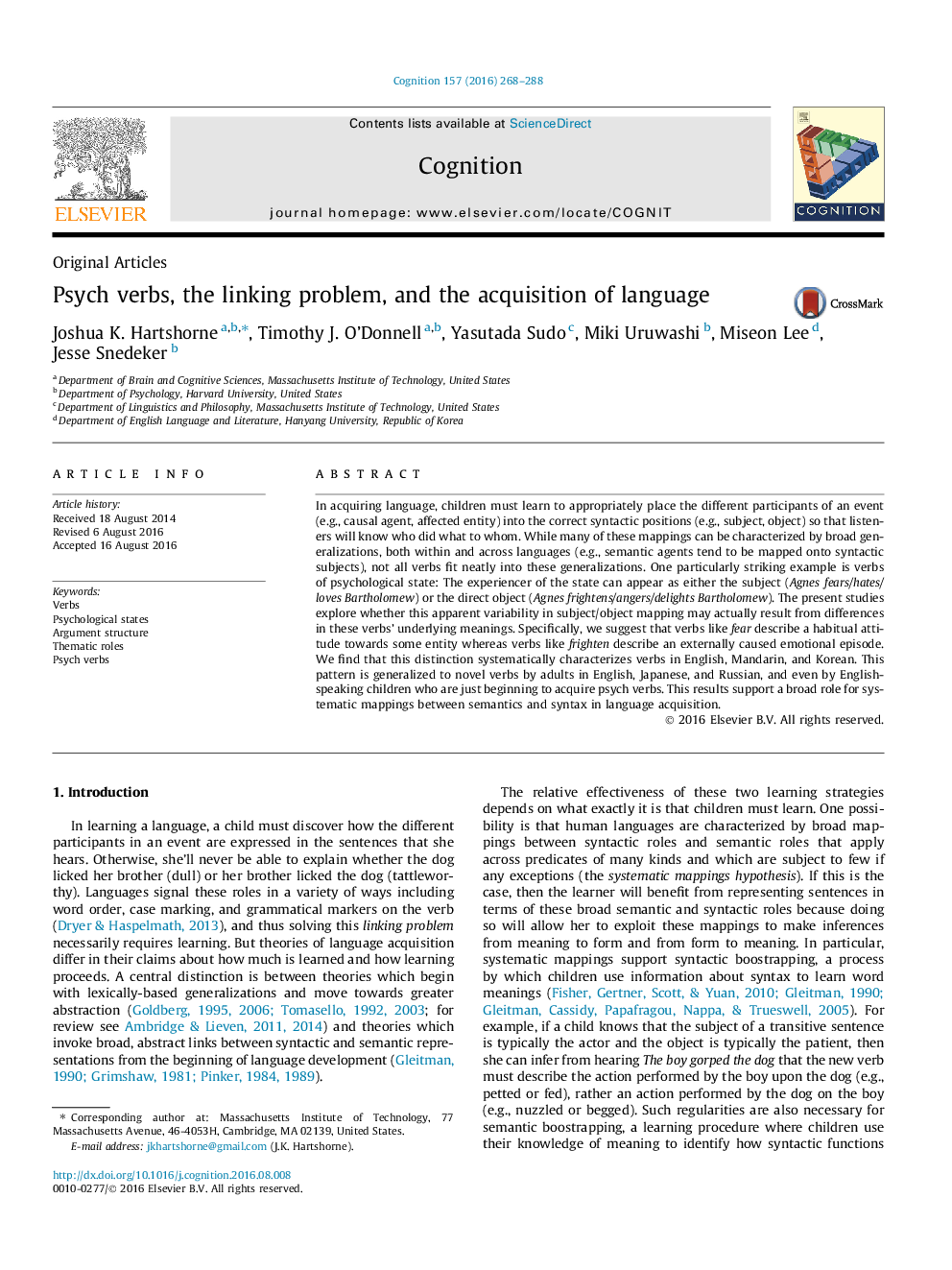| کد مقاله | کد نشریه | سال انتشار | مقاله انگلیسی | نسخه تمام متن |
|---|---|---|---|---|
| 7285793 | 1474110 | 2016 | 21 صفحه PDF | دانلود رایگان |
عنوان انگلیسی مقاله ISI
Psych verbs, the linking problem, and the acquisition of language
ترجمه فارسی عنوان
افعال روان، مشکل اتصال و کسب زبان
دانلود مقاله + سفارش ترجمه
دانلود مقاله ISI انگلیسی
رایگان برای ایرانیان
کلمات کلیدی
فعلها، وضعیت روحی، ساختار استدلال، نقش های موضوعی، افعال روانی،
موضوعات مرتبط
علوم زیستی و بیوفناوری
علم عصب شناسی
علوم اعصاب شناختی
چکیده انگلیسی
In acquiring language, children must learn to appropriately place the different participants of an event (e.g., causal agent, affected entity) into the correct syntactic positions (e.g., subject, object) so that listeners will know who did what to whom. While many of these mappings can be characterized by broad generalizations, both within and across languages (e.g., semantic agents tend to be mapped onto syntactic subjects), not all verbs fit neatly into these generalizations. One particularly striking example is verbs of psychological state: The experiencer of the state can appear as either the subject (Agnes fears/hates/loves Bartholomew) or the direct object (Agnes frightens/angers/delights Bartholomew). The present studies explore whether this apparent variability in subject/object mapping may actually result from differences in these verbs' underlying meanings. Specifically, we suggest that verbs like fear describe a habitual attitude towards some entity whereas verbs like frighten describe an externally caused emotional episode. We find that this distinction systematically characterizes verbs in English, Mandarin, and Korean. This pattern is generalized to novel verbs by adults in English, Japanese, and Russian, and even by English-speaking children who are just beginning to acquire psych verbs. This results support a broad role for systematic mappings between semantics and syntax in language acquisition.
ناشر
Database: Elsevier - ScienceDirect (ساینس دایرکت)
Journal: Cognition - Volume 157, December 2016, Pages 268-288
Journal: Cognition - Volume 157, December 2016, Pages 268-288
نویسندگان
Joshua K. Hartshorne, Timothy J. O'Donnell, Yasutada Sudo, Miki Uruwashi, Miseon Lee, Jesse Snedeker,
